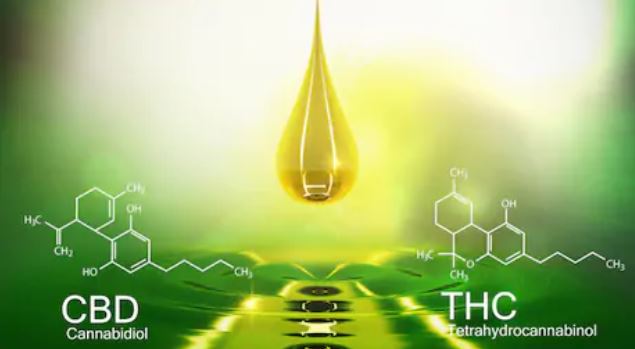CBD 101
Beginner’s Guide to Understanding Full Spectrum CBD Oil & Its Benefits
CBD oil seems to be the talk of the town, which is no surprise considering its many health benefits. Whether you’ve just heard about CBD oil or you’ve been on the fence about trying it for a while, it’s essential to do your research before using CBD to benefit your health.
You can start right here with this complete beginner’s guide to understanding full-spectrum CBD oil and how it can benefit you.
What Is CBD Oil?
In order to understand what CBD oil is, you first have to know about the main ingredient: cannabidiol. A 2018 post from Harvard Health Publishing explains it perfectly:
“CBD stands for cannabidiol. It is the second most prevalent of the active ingredients of cannabis (marijuana). While CBD is an essential component of medical marijuana, it is derived directly from the hemp plant, which is a cousin of the marijuana plant. While CBD is a component of marijuana (one of hundreds), by itself, it does not cause a ‘high.’”
Cannabidiol is the ingredient that makes CBD oil, well, CBD oil.
How Is CBD Oil Ingested?
CBD oil can be used in many different ways, so it comes in many various forms. The oil itself can be infused into edible products, such as gummies, brownies, cookies, or lollipops.
Another ingestion method is to use something called a tincture. A tincture is a small bottle that contains diluted CBD oil. It’s usually diluted with another type of oil, like coconut or grapeseed oil. It comes with a dropper so that a few drops of the mixture can easily be placed under the tongue, in a smooth, in a cup of coffee, or added to your evening Sleepytime tea.
CBD oil can even be added to products that are administered topically, like lotions and salves. It’s also possible to dab or vape CBD oil if you prefer an inhalation method.
What Are the Health Benefits of CBD Oil?
In order to fully understand the benefits of using CBD oil, let’s take a look at some of the research and data that has recently been conducted. A 2019 study on cannabis and cannabinoids (CBD included) states:
“Drugs containing cannabinoids may be helpful in treating certain rare forms of epilepsy, nausea and vomiting associated with cancer chemotherapy, and loss of appetite and weight loss associated with HIV/AIDS. In addition, some evidence suggests modest benefits of cannabis or cannabinoids for chronic pain and multiple sclerosis symptoms.”
Based on these statements, CBD has many benefits, including pain relief, epilepsy treatment, alleviating nausea, and relief from MS symptoms.
Another study focusing on the topical use of CBD found that CBD has many benefits, even when applied to the skin. According to the study conclusion, the findings “indicate that topical CBD application has therapeutic potential for relief of arthritis pain-related behaviours and inflammation without evident side-effects.”
Whether you choose to use CBD orally, inhale it, or spread it on topically, both of these legitimate studies suggest that there are many potential health benefits.
What Does “Full Spectrum” Mean?
When shopping around for CBD oil products, you’ll start to notice words like full-spectrum and broad-spectrum. Whether you go with a full spectrum or broad-spectrum product depends on whether or not you want to experience the full benefits of CBD.
If your answer is yes, you do want all the benefits, full-spectrum CBD is the better choice. This is because broad-spectrum products have gone through a lot more refinement and extraction so that the product is only left with one cannabinoid: CBD.
Full-spectrum products, on the other hand, have not been stripped of all the other cannabinoids and terpenes. Just like CBD, these additional compounds (such as THC) contain a lot of good stuff that can benefit your health. This explains why so many CBD buyers are looking for the best choices of full-spectrum CBD oil in Canada instead of broad-spectrum.
Even though full-spectrum products contain a small amount of THC, there’s no need to worry. The THC content is so minimal that it won’t lead to a high.
Final Thoughts on Full-Spectrum CBD Oil
Now that we know what full-spectrum CBD oil is and its benefits, we must point out that not all CBD oils are made equal. Therefore, it is imperative that you buy CBD oil in Canada from trusted sources that focus on quality, such as Daily Marijuana. Take a look through our CBD shop and check for any deals or promotions that might be running.
References
- WebMB. (2020). CBD vs. THC: What’s the Difference? Available at: https://www.webmd.com/pain-management/cbd-thc-difference#1
- Grinspoon, P. (2020, April 15). Cannabidiol (CBD) — what we know and what we don’t. Harvard Health. Available at: https://www.health.harvard.edu/blog/cannabidiol-cbd-what-we-know-and-what-we-dont-2018082414476
- National Center for Complementary and Integrative Health. (2019, November). Cannabis (Marijuana) and Cannabinoids: What You Need To Know. NCCIH.NIH.gov. Available at: https://www.nccih.nih.gov/health/cannabis-marijuana-and-cannabinoids-what-you-need-to-know
- Hammell, D. C. et al. (2015, Oct 30). Transdermal cannabidiol reduces inflammation and pain-related behaviours in a rat model of arthritis. US National Library of Medicine National Institutes of Health. Available at: https://www.ncbi.nlm.nih.gov/pmc/articles/PMC4851925/



